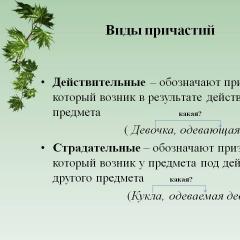"In connection with which": a comma need? When the comma puts: Rules
In connection with which the comma can be put and not put in the same, at first glance, cases? Russian punctuation does not give this question a unambiguous response, rightfully believed to be one of the most difficult in the world. A lot of prepositions, unions and particles may require highlighting or remain as it is. Why is it going on? As you know, random phenomena in the language does not happen. We will try to find all possible explanations for the complex union "in connection with which."
Briefly about alliances
Already from the name is the function of the Union. This small service design is designed to logically connect parts of a common offer, show their relationship. The classification of unions is diverse, shortly focus on the main points.
Connect equal parts of the sentence (I bought apples and pears), subordinates allocate the main and dependent elements (we went home, because it was cold).
Simple unions consist of one word (and, or, but), they can also be repeated. Composite unions (since, because) they have two words and more.
It is closely related to the previous graduation of unions for derivatives and non-derivatives. The difference is that derivatives can be easily confused with other parts of speech, if not in the context (thanks to the time). And non-derivatives are not capable of transformations.
Our today's hero is the Union "In connection with which" is a supervisory, composite and derivative. The last definition will represent the greatest interest. After all, it is precisely from the production that it is placed before "in connection with which" comma, or not.
Combined proposals
It will be logical to assume that they are used in what is their features?
As complex, such proposals consist of several grammatical foundations. But continuous differences begins. A complex proposal will necessarily have in its composition the main and manageable foundation.
I have to do a lot of additional work, in connection with which I take part of the tasks home.

In this example, before the "in connection" puts a comma. And in her need there is no doubt, because we clearly delimit the two bases, where the first is the cause, and the second (home) is a consequence. In this case, the Union indicates a consequence (a person takes work work), which is due to a certain reason (a person has a lot of additional work).
But is it raised after "in connection with which" comma? The answer is negative. The union must be closely related to the basis to which it refers.
Unusual transformation
However, there is one case when the comma is placed and after the Union under consideration. This is a design "due to the fact that." Let's try to change the example above and trace the changes. The meaning of the proposal remained the same. But now the Union "In connection", indicates for the reason:

Due to the fact that I have to do a lot of additional work, I take part of the tasks home.
I take part of the tasks home due to the fact that Mdo not have to perform a lot of additional work.
As can be seen from examples, the reason and the investigation can change places. Now the relative design was added to the union. "The fact that" it always has a comma in its composition. However, in this case, there is a comma only near the Union "in connection".
Simple sentences
Not always the Union "in connection" is used in complex proposals. We prove this using the following example:
Burning fires strictly prohibited in Communication with raising fire hazard.

"Improving fire hazard" is not an independent basis, but only the circumstance of the reason for which the Union "in connection" indicates. Do you need a comma in this case? Need not.
It is worth noting, it is possible to start a proposal if our goal is to emphasize the reason.
In connection with the increase in fire hazardintroducing fires strictly prohibited.
Stationery
Derivative unions firmly strengthened in colloquial speech, journalism and official documents, adopting their specific dictionary and building phrases. So there was a purely stationery phrase "in connection with the above." A more sophisticated version is possible - "in connection with the above."
In connection with the foregoing, I ask for consideration by the candidacy of Novoseltseva A. E. to the post of head of the light industry department.

It is clear that before that, the dignity of the employee was transferred in the document and its competence was justified. All this is "the above" and caused the application of the application, but in this proposal we do not see it. Therefore, after "due to the above", the comma is also not put.
Questions
Let's go back to the first sentence of the article. This time it will become an example.
In connection with which the comma can be put and not put in the same, at first glance, cases?
This proposal also has only one grammatical basis, and therefore does not require additional commas. We can easily replace "in connection with which" on a simple "why" or more complex "for what reason." These turns are not allocated to commas, since they cannot exist in themselves.
When the Union is not a union
In the first chapter of the article, we pointed out the derivative nature of the Union "in connection". The pretext of "B" and the noun "communications" was so often used together, which became a single semantic whole - the union. However, there are infrequent cases when each of these elements is used in its direct, initial value.
At the moment, there are small interference in connection with the central command item.

Immediately draws attention to the emphasis in the word "communications" - now it falls on the first syllable. This is the right indicator that the word is used in the direct value may mean radio communication or telegraph. The offer in its composition is a simple, with one grammatical basis, and here is not needed.
It is worth noting that such cases of consumption are extremely rare and limited to specific applications. Most often "in connection" is used in speech precisely as a complex union indicating a consequence or reason.
Once again about the union
So, when is the comma put - before or after the Union "in connection"? Or maybe on both sides?
- If the proposal is complex, the comma is worth putting before this union, if it is, of course, is not at the very beginning.
- If we are dealing with the design "due to the fact that" the comma is placed only after the Union.
- In ordinary and question deals, the Union is not allocated to the Union.
- If this is not an union, but a noun with a pretext, they are also not marked with a letter by any punctuation signs.
In general, it can be noted that the Union "In connection" never stands out with commas on both sides, as he, being a supervisory, is always closely related to one of the grammatical foundations. 
The alignment of punctuation signs in Russian only at first glance seems to be a difficult task. If at least a little to think about the reasons why the comma is present in the proposal (or there is no), everything can be easier to decompose according to the grammatical shelves. Multiple repetition will definitely develop a sense of intuition in the most confusing cases.
Right and memorable examples for each item rules also help to overcome difficulties. Invent your brief and funny examples - with them the grammar of the Great and Mighty will not be completely terrible!


